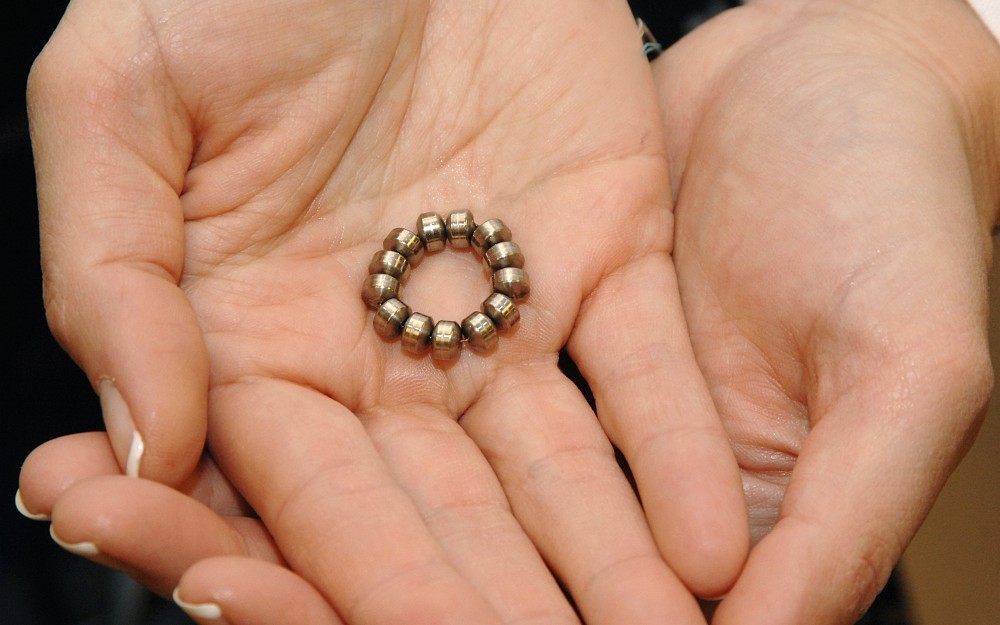
UC Health Offers Magnet-Based LINX System for Patients With Acid Reflux
CincinnatiUC Health physicians are now offering a Food and Drug Administration-approved device that can treat chronic acid reflux, or gastroesophageal reflux disease (GERD), with magnets.
This procedure is being offered at both University of Cincinnati Medical Center and UC Health West Chester Hospital.
Valerie Williams, MD, a member of the UC Cancer Institute, assistant professor in the department of surgery at UC and a UC Health thoracic surgeon, says the LINX Reflux Management System can eliminate the need for medications as well as side effects that may come from long-term medicinal therapies.
"Between 30 and 40 million Americans suffer from daily GERD symptoms, which can be triggered by spicy and acidic foods, and typical symptoms include heartburn and regurgitation; cough and chest pain is also common, she says. "GERD is rarely life-threatening, but it is painful and can significantly impact patients daily activities. In select cases, frequent reflux can cause serious damage to the lining of the esophagusa condition called Barretts esophagus, which carries a risk for esophageal cancer.
Williams adds that patients can get relief from medication but that about 30 percent of patients are still symptomatic despite medical management and that these patients could benefit from an operative intervention.
"The normal human body has a barrier or valve between the esophagus and stomachthe lower esophageal sphincterwhich keeps acid out of your esophagus, she says. "This barrier breaks down, and that is the main problem. It gets weaker and shorter and can be associated with a hiatal hernia. LINX is a ring of magnets that is placed around the bottom of the esophagus to augment the valve. At rest, the magnets are closed, and they open when you swallow allowing food to pass, mimicking a normal reflux valve.
The minimally invasive procedure takes an hour or less, allowing the patient to leave the hospital the same day and resume a regular diet immediately following.
"Compared to the conventional surgical treatment with a fundoplication, which creates a stronger valve by wrapping the top of the stomach around the bottom of the esophagus, there are fewer side effects, such as gas bloat, Williams continues. "The ability to belch and vomit is also retained with LINX. The magnetic ring does not alter normal anatomy and is reversible.
"Were excited to offer this technology to patients and hope that this option can help patients with GERD experience a better quality of life.

Valerie Williams, MD
Tags
Related Stories
UC lab using $2.6M grant to study type of heart disease linked...
July 17, 2025
A University of Cincinnati College of Medicine researcher has been awarded a $2.6 million federal grant to study a potentially deadly form of heart disease that affects people with diabetes called diabetic cardiomyopathy.
Two local families host special blood drives
July 17, 2025
Two Tristate families are turning personal journeys into community impact by hosting specialty blood drives in honor of their children this July.
Champions of progress and opportunity
July 16, 2025
Tom met his wife, Pam Mischell, DAAP ‘71, as a University of Cincinnati student. When a date canceled his plans to go to a concert, he asked a Phi Kappa Theta fraternity brother to help him find a new date.
